Sydneysiders embrace coming out of COVID-19 hibernation
The door on our five-week-long hibernation has opened the tiniest bit. Some are relishing the chance to see the grandkids or catch up with friends, while others have found comfort in the lockdown, and tracky dacks.
NSW Coronavirus News
Don't miss out on the headlines from NSW Coronavirus News. Followed categories will be added to My News.
For grandparents Maureen and Ron Chuck, the lifting of strict lockdown measures means seeing their grandchildren after too long a time.
The Cabarita couple had been on a cruise in February and returned just before the “stay home and isolate” rules came in, so they have been doubly missing their family.
And yesterday, the first day when it was announced visiting family was OK, the Chucks hosted a simple lunch on the balcony, in the fresh air and still obeying social distancing.
Something that was so ordinary, so taken for granted a few months ago, took on a magical quality.
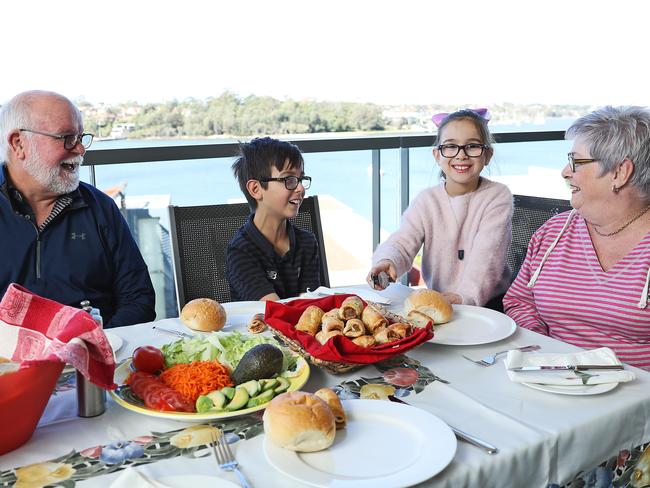
“We had been away and we saw them just one day after we got home and then the lockdown came in and all we have done is FaceTime, but I really miss hugging them,” Mrs Chuck said.
At 64 and a diabetic, Mrs Chuck has strictly obeyed the rules but relished them being lifted to see her daughter Grace and grandchildren Owen, 10, and Alisha, 7.
MORE CORONAVIRUS NEWS
Three Newmarch COVID-19 cases push back family visits
Five new COVID-19 cases out of 8800 tests
“I have diabetes so I am at high risk, but I just don’t think I should hug the grandkids yet,” she said.
“We’ve missed them so much, it’s been a long 12 weeks because we were away and they have always been there and always close,” Mr Chuck, 66 said.
Without the comfort of family, anxiety and depression rates have risen in the pandemic.
“I have been anxious and felt lonely, just missing that contact. My initial anxiety was due to fear of contracting coronavirus — that has eased somewhat — but I was thinking of the people you usually turn to in these times and you can’t, so the loneliness has persisted,” Mrs Chuck said.
She is furious the NRL announced it would be playing while she was missing her grandchildren for the greater good of social distancing.
“I don’t know why they think they are so special,” she said.
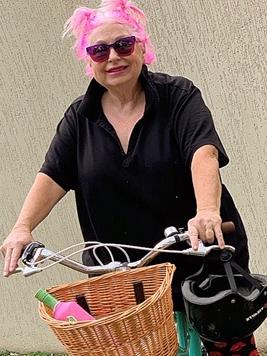
While most are excited for life outside hibernation some, like aged care entertainer Krissy Stanley, have come to enjoy the lockdown and letting the grooming standards drop.
She is used to dressing up and performing Kris’s Feathered Friends every day for nursing home residents, which obviously stopped in the pandemic.
“I’ve just been staying at home and falling to bits slowly,” the 70-year-old said.
“My regrowth looks like an Iced VoVo, I desperately need Botox, I’ve lost a veneer, my pierced ears have closed up because I haven’t had earrings in it for six weeks, my eyebrows are washing off, the list just goes on.
“I’ve really enjoyed letting myself go, I’m clean, I do shower every day, and pull on an old pair of shorts and a T-shirt and it has been wonderful to not worry about anything.”
Similarly, Newcastle mum of two Samantha Johnson caught herself in the mirror last week and got a shock.
“I looked in the mirror and I stared at my hair in the scrunchie and thought this has become a uniform, the sports bra sticking out of the gym shirt and black tights and that is all I wear, no makeup, eyebrows aren’t done, the regrowth and it’s hilarious and I thought I can’t be alone in this,” the 33-year-old said.
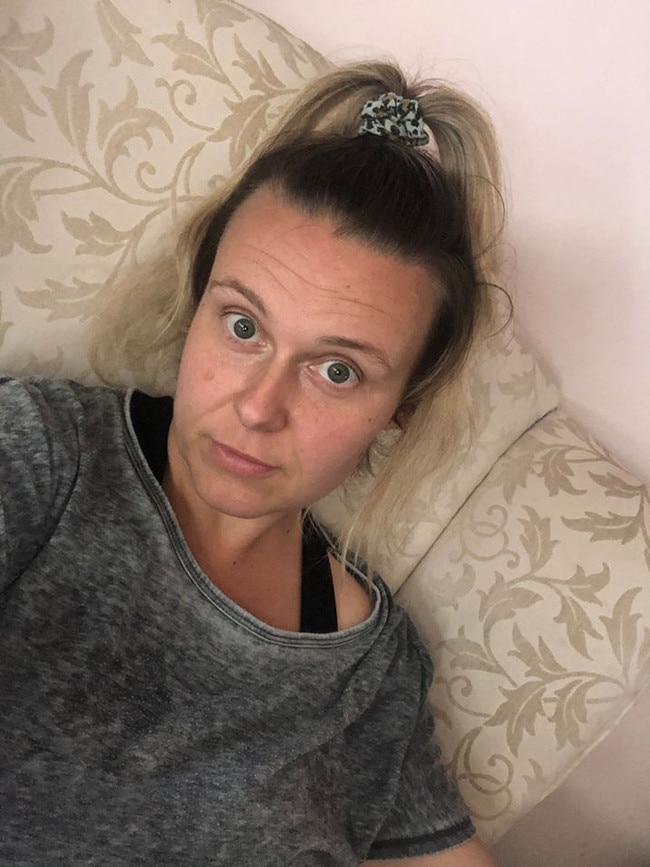
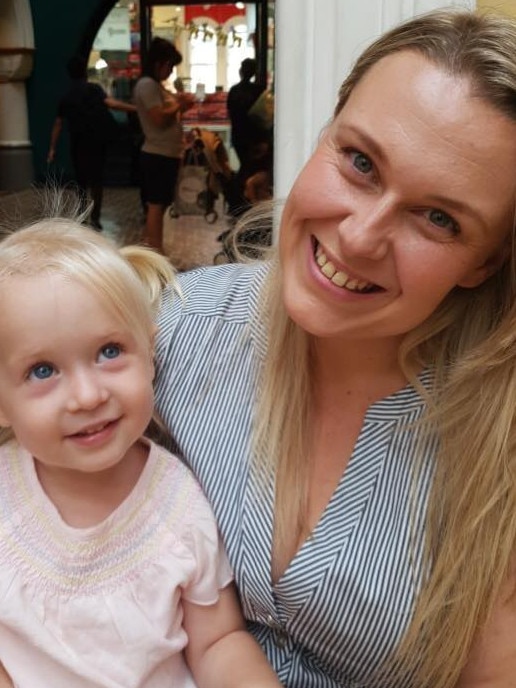
Ms Johnson posted the photo to a mums group on Facebook and got an hilarious response from mums in iso in the same “uniform”.
“Pre corona we were in a Kardashian era of beauty focus, lip injections and cosmetic work and fake eyelashes all very standard stuff and I wonder if people will come back and say ‘do I need that, do I want that?’ it will be interesting to see how it plays out. I do miss dressing up so I look forward to it.”
Emma Spencer from the Sydney Psychology Centre said some people, including herself, had enjoyed the lack of routine the lockdown brought for families.
“I know I feel I got back a lot of time, particular in the morning — the morning routine is a real challenge for a working person, getting the kids ready for school and off to school and getting to work on time and the commute etc,” the mother of three said.
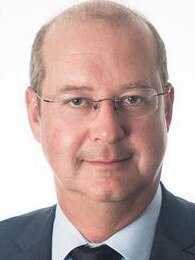
“I know a lot of people hope this is going to mean there will be more allowances for people to work from home.
“I also think there has been a lot of opportunities for families to connect in really nice ways over this time.
“ I think in other ways there has been pressure but for some the increased opportunity to spend time and share space together has been a lovely thing that we have missed in our society because we are so busy.
“This has been an opportunity to reflect on that to see what is important.
“I haven’t seen my mum and dad but for us it has been nice to be at home and not have as many things to go to and do, so I want to do a little bit more of not doing as much.
“My mum lives 20 minutes away and isolates and my dad is immunosuppressed after cancer, so he is isolating on the Central Coast.”
Once the door to freedom is fully open, Professor of psychiatry Ian Hickie believes a pent-up demand for joy and hedonism will create a problem for the government as people rush to the pub.
“The problem will be the over-reaction, like the beaches last week,” he said.
“People are given half the opportunity and everyone rushes out to do it — it’s pleasurable and doing what makes life bearable.
“Life is hard and then you die, the issue is the pleasure along the way.
“We have had to postpone pleasure so we don’t lose to the virus, we have put off our own pleasure and enjoyment for the common good.
“I can’t wait for dinner in a restaurant with my favourite people, six or eight of them, dining with people who are not family I want to celebrate with.”
The business side of life will also look different post-lockdown, according to UTS economist Professor Warren Hogan. Many of us have proved to our bosses we can work from home and companies may considered downsizing expensive office real estate in the city as a result.
“Most staff will work a couple of day from home,” he said.
“There will also be a need for efficiency. Businesses will have to operate on a lower cost base, the pressure on that will be relentless.
“One key area business will identify is agile working, where they can have a reduced footprint in the city and have more people rotating through a smaller office.
“People need to get together physically but it highlights we can work agilely. I think there will be a reduction in demand for office space in the order of 10 to 20 per cent.”
The big upside to remote work is the reduction in traffic and a lessened demand for public transport.
“It will take pressure off the roads and congestion, pressure off public transport and I have always been baffled by peak hour and the lack of flexibility around hours, the pressure to all be there by 8 or 9am, and leave at 5pm or 6pm, maybe people can work for four hours in the office and four hours at home and spread the flow of traffic,” Prof Hogan said.
Professor David Hensher from Sydney University’s Institute of Transport and Logistics Studies said if social distancing measures had to be implemented on public transport, people may ditch it in favour of cars.
“As people slowly go back to work and get out and about, people may see the car as the best way to achieve social distancing. I think more people will use their cars because they feel safer there,” Prof Hensher said.
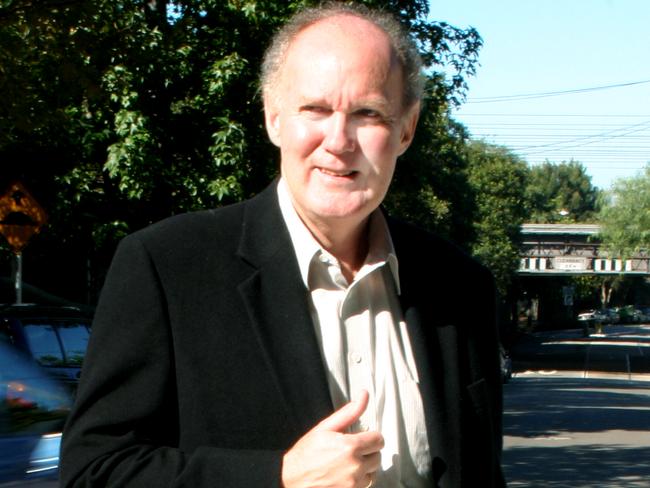
The virtual meetings that many business have adopted during COVID-19 will have an enormous impact on business travel.
“The need to get on a plane or go to another office to meet will be impacted, we will do a lot more meetings virtually and will reduce the need to be in the city, reduce the need to travel from Sydney to Melbourne or Adelaide,” he said.
“The recovery in the corporate international travel will take years because people just will not be travelling for business.”
While tourism is taking an enormous hit at the moment, it will bounce back strongly.
“The tourism industry will have a very strong bounce because of what economists call a pent-up demand, so the desire to travel will be high,” he said.
“Cruise liners will struggle because one of the lasting impacts on the consumer psyche is a much greater awareness of health issues. I can’t see the same demand for cruising.”
Norm Black, co-founder of TripADeal said in the last few days “a level of positivity” had seen an uptake of holidays planned and booked for next year.
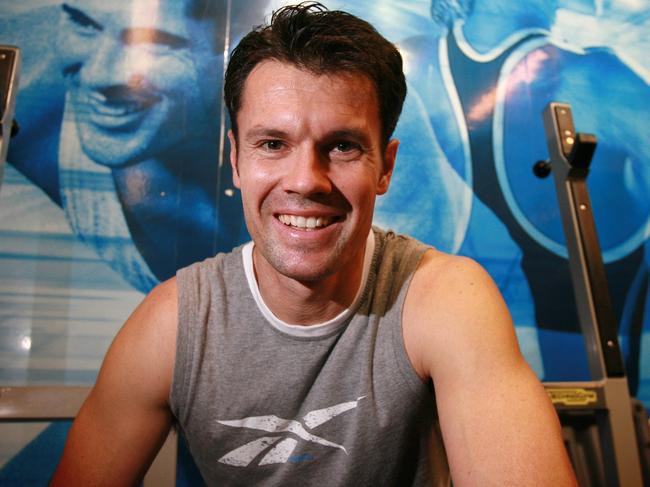
For fitness equipment salesman Dean Piazza, a “good week” was once selling 10 treadmills.
“But that first week in March my phone went from ringing a few times a day to ringing every thirty seconds,” said Piazza, whose company Endurance Treadmills began averaging 100 sales a day.
“It got to the point I couldn’t actually answer calls and emails.
“It just became too much. We were selling everything and then once everything sold out we would start pre-orders and then the pre-orders would sell out.”
But the explosion in demand for home workout equipment, coupled with the majority of overseas production ceasing, has created an unfillable demand.
That has sent fitness fanatics online, where free weights and stair climbers are reaching astronomical prices.
A single set of hand weights, for example, can sell for as much as $200.
Piazza said this rush to stock home gyms could spell major problems for gym chains and group fitness classes.
“I can’t see people rushing back to gyms in a hurry,” he said.
“I think people will just think they present too much of a health risk. For the next year or so anyway.”
However Lorena Sumich, who founded fitness app Kixxfit last year, thinks the trend will eventually swing back despite the doubling of her business in the past two months.
“There’s no doubt that people who haven’t tried fitness apps at home before will become increasingly comfortable in doing so,” said Sumich.
“We have been extremely fortunate in that we’ve seen big jumps in our numbers but I think there will always be those who enjoy that gym environment or the group class environment.
“I don’t think it will return to exactly what it was before (COVID-19) but I think there will be something of a new normal in terms of the balance in the way people are choosing to work out.”
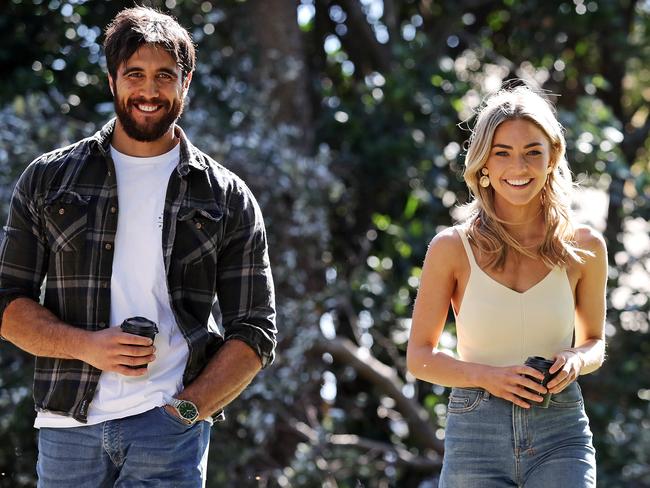
Like many of us given a first taste of social freedom in weeks, Sam Frost admitted she was tentative about venturing out.
“To be honest, I stayed at home on Friday night,” laughed Frost, who took her first “baby steps” outdoors yesterday morning to catch up for coffee with her Home And Away co-star and show newcomer Ethan Browne in Rose Bay.
“It’s strange because I’m just so used to being at home now.
“I’m also a bit of a homebody, so I feel like maybe I’m using this as an excuse to stay indoors.
“But getting out (yesterday) morning in the sunshine. it was actually really nice. I’m still wary, though.
“We both were mindful of keeping 1.5m apart and all of that kind of thing.
“But it does feel as if this is the first bit of light at the end of the tunnel.”

Frost and the rest of her Home And Away cast have been cooling their heels for the past six weeks with production on the long-running show shut down on March 20.
Regular WhatsApp chats with her co-stars not withstanding, Frost — who plays widowed nurse Jasmine Delaney on the show — said the break from shooting has been challenging.
“I like structure. I like working. I like getting up in the morning and feeling productive so missing all of that has been really hard. And not seeing family, that’s been the most difficult.”
It has been an unorthodox baptism of fire, too, for Browne who landed the role of Tane Parata on the soap late last year as he came to the end of his three-year NIDA acting course, only to have his debut skittled by COVID-19.
The hiatus has also kept him separated from his family in New Zealand.
“I think we’re all looking forward to getting back into the filming routine,” said Browne, who confirmed no resumption date has yet been set.
